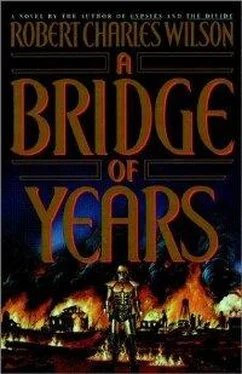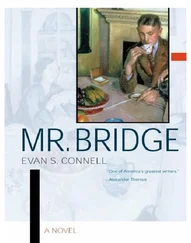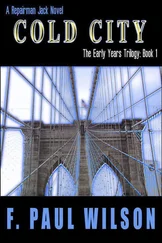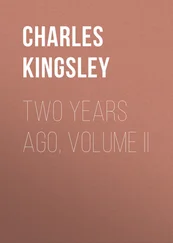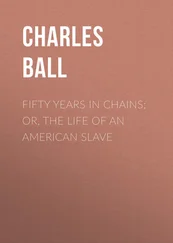“Read anything you want,” she said.
He shook his head. “I don’t think I could concentrate.”
Probably not. And he was shivering. She brought him a big bath towel and a cotton shirt Lawrence had left behind. “Dry off and change,” she said. “Sleep if you want.” She left him stretched out on the sofa and went into the “kitchen”—a corner of the room, really, with a sink and a reconditioned Hotpoint and a cheap partition—and rinsed a few dishes. Her rent was due and the severance check from her department store job would cover it; but that would leave her (she calculated) about seven dollars to live on until she picked up some music work or another job. Neither was impossible, but she would have to find a gig or go hungry. But that was tomorrow’s problem—today was today.
She left the kitchen passably clean. By the time she’d finished Tom was asleep on the sofa—stark stone unconscious, snoring a little. She picked up his watch from the wooden crate table where he’d left it, thinking, It must be late.
Then she did a double-take at the face of the watch, which wasn’t a watch face at all but a kind of miniature signboard where the time was written in black numerals over a smoke-gray background.
9:35, it said, and then dissolved to 9:36. The little black colon winked continuously.
Joyce had never seen such a watch and she assumed it must be very expensive—surely not a car salesman’s watch. But it wasn’t a foreign watch, either. It said “Timex” and “Quartz Lithium” (whatever that was) and “Water Resistant.”
Very very strange, she thought. Tom Winter, Man of Mystery.
She left him snoring on the couch and moved into the bedroom. She undressed with the fight off and stretched out on the narrow spring-creaking bed, relishing the cold air and the clank of the radiator, the rattle of rainwater on the fire escape. Then she climbed under the scratchy brown blanket and waited for sleep.
Mornings and evenings, she loved this city.
Sometimes she slept five hours or less at a time, so she could have more morning and more night.
Nights, especially when she was out with Lawrence and that crowd, she would simply let herself be swept up in the urgency of their conversation, talking desegregation or the arms race in some guitar cafe; swept up by the music, too, legions of folk singers arrowing in on Bleecker and MacDougal from all over the country these days; in sawdust-floored rooms filled with her poet friends and folk friends and “beat” friends, earnest Trotskyites and junkies and jazz musicians and eighteen-year-old runaways from dingy Midwest Levit-towns, all these crosscurrents so fiercely focused that on some nights she believed the pitch-black sky might open in a rapture of the dispossessed and they would all ascend bodily into heaven. Nights like that had been common enough this winter and spring that she was eager for summer, when the pace would double and redouble again. Maybe Lawrence would publish his poetry or she would find an audience for her music. And they would be at the eye, then, of this luminous vortex.
But mornings were good, too. This was a good morning. It was good to wake up and feel the city waking up around her. Since she had lived in New York the rhythm of the city had become a stabilizing pattern. She had learned to distinguish the sound of morning traffic from the sound of afternoon traffic, both distinct from the lonelier siren sound of the traffic late at night. Morning traffic woke her with promises. She did not dislike the city until noon; at noon it was coarse, loud, unruly, plain, and chokingly dull. Lunch hours at Macy’s she had written songs about the night and morning city, little spells against the crudity of midday.
Tom was still asleep on the sofa. Joyce was faintly surprised by this. She had imagined him vanished in the morning, like a dream, like smoke. But here he was: substantial in his rumpled clothes. She heard the clank and moan of the bathroom plumbing; he stepped into the kitchen with his face freshly washed and his eyes as wide and dazed as they had been the day before.
“New York,” he said. “Nineteen sixty-two.”
“Congratulations.”
“It’s amazing,” he said.
“You really are from out of town.”
“You could say that.” His grin was big and a little silly. “Feeling better this morning?”
“Better. Giddy, in fact.”
“Uh-huh. Well, don’t get too giddy. You probably need breakfast.”
“Probably.” He added, “I’m still broke.”
“Well—I can buy us breakfast. But I have to meet Lawrence at noon. Lawrence might not appreciate knowing you slept here.” Tom nodded his acceptance without asking who Lawrence might be—very courteous, Joyce thought.
She locked up and they descended to the street. The sky was bright and the air was almost warm—which was good, because Tom didn’t have a coat to throw over his cotton shirt. She started to recommend a thrift shop she knew about —“Once you get some cash.” But he shrugged off the problem. “I’ll worry about money later.”
“That’s a good attitude.”
“First I have to see about getting home.”
“You don’t need money for that?”
“Money’s not the problem.”
“So what is the problem?”
“The laws of physics. Mechanical mice.” Joyce smiled in spite of herself. He went on, “I can’t explain. Maybe I will someday. If I find my way back here.”
She met his eyes. “Seriously?”
“Seriously.”
She ordered up a coffee-shop breakfast for both of them. Cutting into her budget a little—but what was money for? Tom insisted on buying a newspaper and then he sat marveling at it, turning the pages reverently … not reading it so much as inspecting it, Joyce thought. Personally, she hadn’t picked up a paper since the John Glenn launch in February. She said, “Are you just a car salesman or are you a poet too?”
“I’ve never been accused of poetry before.”
“What you said about mechanical mice. And, hey, this is the Village. Poets are like cockroaches around here.”
“My God, it is, isn’t it? ‘The Village.’ ” He looked up from the paper. “You play music?”
“Sometimes,” Joyce allowed.
“I noticed your guitar back at the apartment. Twelve-string Hohner. Not too shabby.”
“You play?”
“A little bit. From college. It’s been a few years, though.”
“We should play sometime. If you come back.”
“Guitar players must be as common as poets around here.”
“Well, they’re like snowflakes. No two the same.” She smiled. “Seriously, if you come around this way again …”
“Thank you.” He looked at his watch and stood up. “You’ve been awesomely generous.”
“De nada. Besides, I like you.”
He touched her hand for a moment. The touch was fleeting but warm, and she felt a little internal tingle—mysterious, unexpected.
“I might be back,” he said.
“Goodbye, Tom Winter.”
He walked into the pale sunlight, wavered a moment in the doorway, then headed unsteadily east.
Find what you’re looking for, she thought. A parting wish. Though it didn’t seem too likely.
Probably, she thought, I’ll never see him again.
She sipped her coffee and glanced at the paper, but it was all bad news: two men had been murdered in an alley not a block from her apartment. While she slept, Death had been out walking the streets.
This was a shivery thought and she looked up once more, craned her neck to spot Tom down the street; but he was already gone, lost in the morning traffic and out of reach.
Читать дальше
